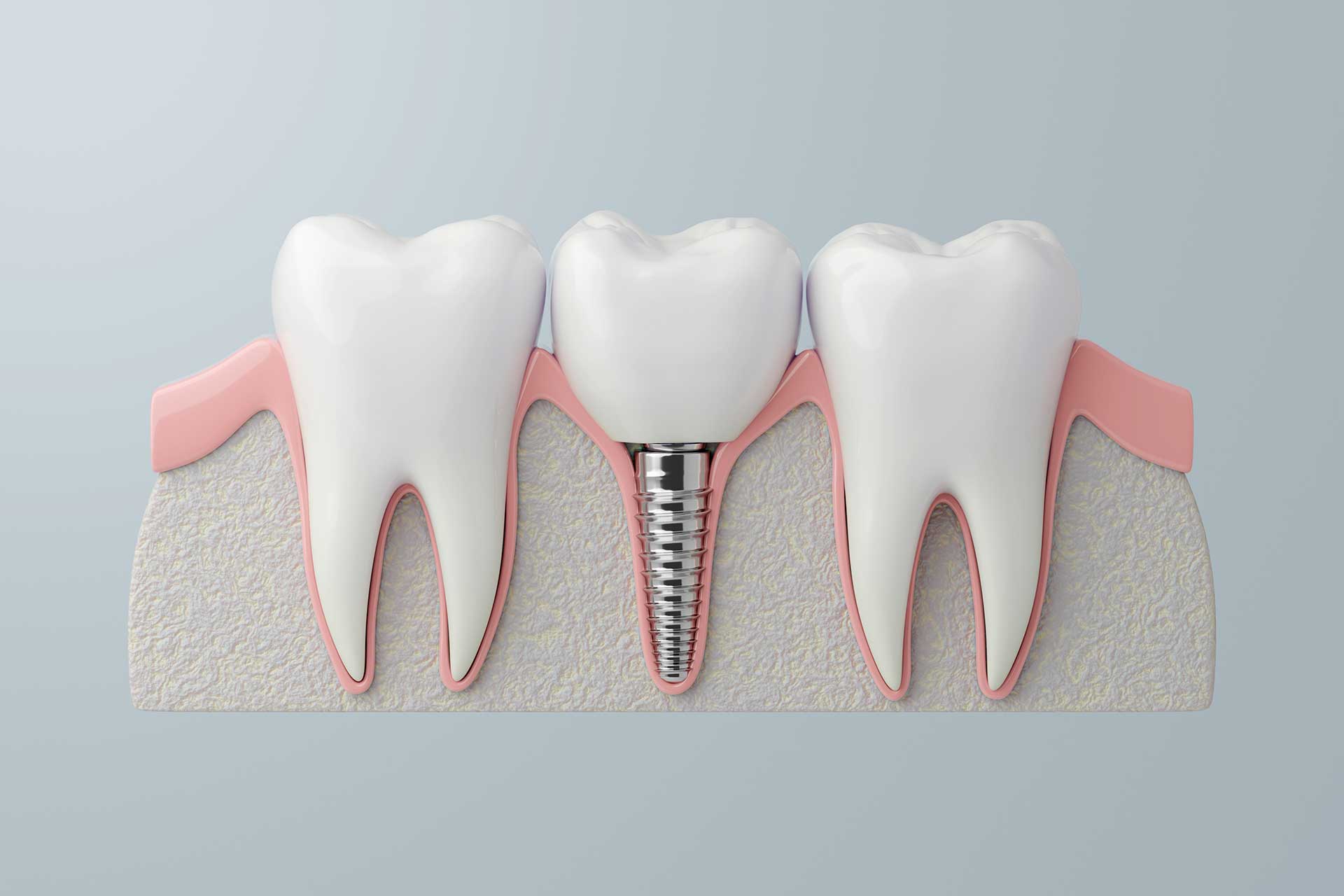Dental implants are among the most effective and long-lasting solutions for replacing lost teeth in modern dentistry. Implant treatment involves using titanium screws to address tooth deficiencies and provide a natural appearance. However, the success of dental implants depends on various factors, and there are many details to consider during the treatment process.
Factors to Consider in Implant Treatment
To increase the success rate of dental implants, consider the following factors:
Appropriate Candidate Selection and Comprehensive Examination
One of the most critical steps in dental implant treatment is selecting the right candidate and conducting a thorough examination. This stage evaluates the patient's overall health, oral structure, and jawbone quality.
- Comprehensive Examination: Your dentist may use panoramic X-rays or 3D tomograms to assess the structure and health of your jawbone, determining your suitability for implant placement.
- Health Assessment: Your overall health can affect the success of implant treatment. If you have health issues like diabetes, heart disease, or osteoporosis, it is essential to inform your dentist.
- Treatment Plan: Based on the examination results, your dentist will create a personalized treatment plan, including the area for implant placement, the type of implant, and the treatment process.
Sufficient Jawbone and Bone Graft Usage
Successful implant placement requires adequate jawbone. Insufficient bone can affect the stability of the implant and reduce treatment success.
- Bone Measurement and Analysis: If insufficient bone is detected, your dentist may recommend a bone graft.
- Bone Graft: Bone grafting is a method used to fill missing bone areas. It integrates with your natural bone to ensure successful implant placement.
Implant Quality and Type
The quality and type of dental implants are significant factors affecting treatment outcomes. High-quality implant materials and designs provide long-lasting and healthy results.
High-Quality Implants: Implants made from quality materials like titanium and zirconium offer successful integration and longevity. Your dentist can help you choose the most suitable implant type and quality.
Implant Type: Different implant types can be selected based on your dental structure and treatment needs.
Implant Surgery and Appropriate Techniques
Dental implants surgery requires a precise and professional approach for successful placement. Surgical techniques can affect the stability and integration of the implant.
- Surgical Quality: The techniques and methods used during implant placement are crucial for success. Your dentist’s experience and expertise can enhance the quality of the surgery.
- Minimally Invasive Techniques: Minimally invasive surgical techniques can accelerate recovery and reduce the risk of complications. Modern techniques such as laser technology or computer-assisted surgical systems may be used.
Recovery Process and Care
The success of implant treatment depends on the recovery process and care. Integrating the implant with the mouth takes time and requires special care.
- Recovery Process: The recovery period after implant placement generally takes several months. Follow your dentist's care instructions during this time.
- Oral Hygiene: Maintaining cleanliness around the implant area is essential for successful recovery. Regular brushing, flossing, and using mouthwash are crucial.
- Check-ups: Schedule regular follow-up appointments with your dentist. During these visits, your dentist can assess the implant’s condition and make necessary adjustments.
Healthy Lifestyle and Nutrition
A healthy lifestyle and balanced diet can impact the success of implant treatment. General health affects the recovery process and implant integration.
- Balanced Diet: A diet rich in vitamins and minerals supports dental health and recovery. Focus on consuming foods high in calcium and vitamin D.
- Smoking and Alcohol Use: Smoking and excessive alcohol consumption can negatively impact implant healing. Avoiding or reducing these habits can improve the treatment process.
If you need more information about dental implants or personalized advice, contact your dentist. You can achieve the best results from dental implants by paying attention to the necessary care for a healthy and aesthetic smile.
